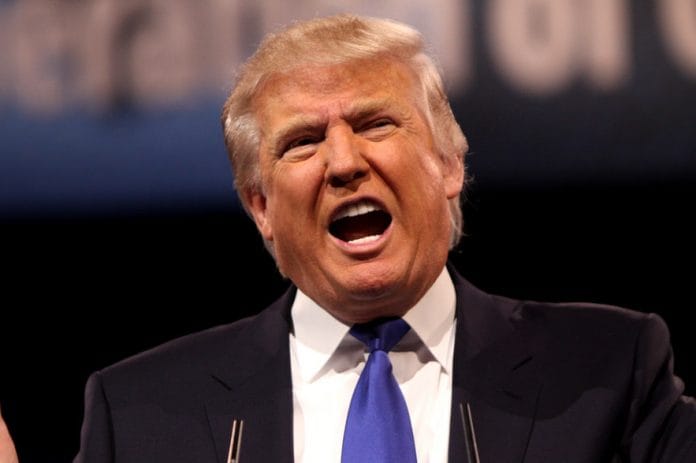Trump’s hawkishness is backfiring globally
He may have blamed “both sides” for the violence in Charlottesville, but Donald Trump’s attempts at diffusing international tensions are seldom as forgiving to threats – real or perceived – from other countries. In recent months, he has used warnings of military intervention at least on three occasions – each leading to unanticipated results.
Venezuela’s president was a pariah among fellow Latin American leaders until Trump decided to threaten the use of military action in the country. Now, the leaders are coming together to demand that the US keep out of the region’s affairs. In the Korean peninsula too, there are signs of division with a vital ally. Alarmed by Trump’s threats to the North, South Korea’s president has said, “No one should be allowed to decide on a military action on the Korean Peninsula without South Korean agreement”. Meanwhile in Tehran, the president has already warned of restarting nuclear fuel production “within days or hours” should the US press ahead with new economic sanctions.
Saudi Arabia’s disappeared princes
Disappearances are hardly aberrational in Saudi Arabia. Now, new details have emerged about abductions of three dissident Saudi princes. “There is some kind of an established pattern of forced repatriation, or kidnapping, of Saudi princes who are very vocal against the Saudi government,” Reda El Mawy, a BBC Arabic journalist said.
All the three princes, who became politically involved in peaceful activities against the ruling al-Saud family were forcibly taken away from Europe back to Saudi Arabia between 2015 and 2016, and have been missing since. Their kidnappings seem to be part of a systematic state-run government strategy to silence defectors and dissidents. Meanwhile, a fourth prince exiled in Germany worries about his fate. “There were four of us family members in Europe. We criticised the family and its rule in Saudi Arabia. Three of us were kidnapped. I’m the only one left,” he says.
Tunisia’s steady march towards equality
Tunisia’s president has often faced backlash from conservative and religious quarters for promoting the rights of women. But that doesn’t seem to have stopped him in the least. In the latest of his attempts at achieving equality between men and women, Beji Qaid Al Sebsi has called for the abolition of a circular, which prohibits Muslim women from marrying non-Muslim men in the country. He also hinted at amending the country’s inheritance laws to ensure parity between male and female inheritors.
All this has obviously riled up the orthodoxy, which has pledged to resist any changes to the “rules of God”. “The call to amend the inheritance laws would destroy the social structure and would open the door to systems that have nothing to do with the history, traditions, norms, religion or practices of Tunisia,” a prominent judge said. Last month, the Tunisian parliament approved a law on violence against women with provisions against domestic violence, harassment in public spaces and economic discrimination.
Zimbabwe’s unsavoury Grace
A week ago, the Mugabes were in the news for announcing an eponymous $1 billion university in Zimbabwe. A week later, the famished country’s first lady is in news for molesting a 20-year old South African model. And despite the charges leveled against her in South Africa, Mrs. Mugabe, who earlier said she’d report to the police in Johannesburg, is safely back home in Zimbabwe.
Grace Mugabe – referred to as ‘DisGrace’, ‘Gucci Grace’ or ‘First Shopper’ by her many detractors – had been accused by the model, who was visiting her two sons in a hotel, of hitting her over the head with an extension cord. 41 years younger than her husband, she was accused of assaulting a photographer in Hong Kong, too. She is also called lazy, pampered and is known for her overseas shopping expeditions in one of the poorest countries in the world.
Brazil’s Supreme Court could set back the clock on indigenous rights
The rights of indigenous people in Brazil have been diminishing for a while now. There is also a rise in violence against them. Only this year, the UN and inter-American experts said that indigenous and environmental rights were under attack in Brazil – especially with regard to land demarcations. It is in this backdrop that Brazil’s President signed a ruling, which seeks to halt any demarcations of land on which indigenous people were not living before October 5, 1988 – the year when the country’s current constitution took effect. The Supreme Court is now set to decide on the ruling.
Indigenous activists point out that the year 1988 has little relevance for indigenous people – many of whom were forced from their lands before that – and the Supreme Court’s approval could undo whatever little progress has been made in the area of indigenous rights.”This ruling legitimises the violence that indigenous people in Brazil have historically suffered,” an activist said.
Compiled by Sanya Dhingra.






